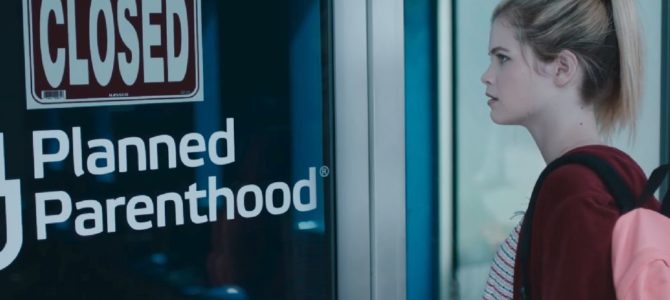
Hollywood director Joss Whedon recently said he made a support video for abortion giant Planned Parenthood because “Women’s health care is so much just about women’s humanity.” The video shows three different women for whom access to Planned Parenthood meant hope, a chance for an education, and even the woman’s own life. It’s a savvy marketing approach, meant to convince the public how essential Planned Parenthood clinics are for women.
“It is about whether they have control over their bodies and whether they have control over their minds and their education and their decisions,” Whedon told BuzzFeed, concerning the video and the current discussion regarding Planned Parenthood. “It’s all wrapped up.”
Yet I’ve found that some of the “freedoms” Whedon and Planned Parenthood consider necessary actually are “wrapped up” in women’s oppression. Since 1990, I’ve worked with many women who have suffered from various forms of oppression, first as a volunteer for a hotline for battered women, then in my first job as a social worker at a feminist agency serving abused women and women dealing with substance abuse. I’ve also worked in a hospital, group homes for teen girls and young single moms, in pregnancy help centers, and in other domestic violence agencies.
I Didn’t Expect to Hear about Coerced Abortions
When I started a career in social work, I expected to hear about physical and sexual abuse, bad neighborhoods, nasty landlords, difficulties with welfare and food stamps, and the like. What I never expected to hear were the stories women told me about coerced abortion.
When discussing their experiences of abuse, woman after woman told me how they hadn’t wanted to abort their babies, but their husbands or boyfriends had forced them to do so. They shared their experiences of heartbreak, with symptoms of trauma such as nightmares about the abortions, and their regrets. This experience has been repeated many times when I’ve counseled an abused woman or teenager over the last 20-plus years. Over time, I have become less surprised by what I hear, but never less saddened by hearing my clients’ stories.
Some may say the above are extreme cases and don’t represent the average woman who seeks an abortion of her own volition. I’ve found that even women who haven’t been coerced into abortion by a partner, who have seemingly freely chosen abortion, bring up regrets and symptoms of trauma spontaneously when discussing their life histories. It seems that even women who make a choice to abort often feel like they have no choice but to abort.
Is It Really a Choice If Women Don’t Feel They Have One?
The observation that women choose abortion in response to some crisis is supported by empirical research. According to a Guttmacher Institute Fact Sheet from January 2017, the three most common reasons given by 1,200 women seeking abortion were the following: their concern for or responsibility to other individuals, financial issues, and the belief that having a baby would interfere with work, school, or the ability to care for dependents. Nearly three-quarters of the women questioned cited these concerns. Nearly half of the women either stated they had chosen abortion because they would be single mothers or they were having relationship problems.
The problems women face with unintended pregnancy are legitimate and real. Yet is abortion the best “tool” we can come up with for solving the problems women face, considering the trauma women often face post-abortion?
Here’s a short list of some problems abortion-seeking women often face, and alternatives to solve them. All names are pseudonyms for actual women I have counseled who have found other tools — rather than abortion — to find resolution to their crises.
Jane is told to either abort or leave her home. Jane faces homelessness. The solution to her problem is not abortion, but finding a safe place for her to live. That can be difficult, but it’s not impossible. Pregnancy help centers frequently help women in such situations find housing.
Felicia doesn’t have health insurance because she is undocumented. In every state I have ever worked, pregnant women can get medical coverage. Those public health centers we keep hearing about serve many women who need prenatal care. I’ve referred many a pregnant woman to them. I should add that even those who are in the country illegally can get help with these costs, as charitable care does exist.
Marina is a senior in high school, about to graduate and go off to college on scholarship. Title IX does not allow a school to discriminate against a woman because of pregnancy or any related conditions, because she has a child, or because of her marital status. A school receiving federal funds cannot make someone sign an agreement not to get pregnant, or punish someone for getting pregnant. Also, groups like Feminists for Life and Students for Life have lots of resources for students who are expecting or parenting, including the “Pregnant on Campus” initiative.
This is not an exhaustive list of the issues that cause women to consider abortion, nor of the resources to assist in their resolution. Admittedly, there also is a need for better access and funding of ressources for pregnant women (e.g., for greater funding for public health centers).
Yet my clients’ experiences show that real oppression for many women is the lack of choice to avoid abortion because of things like poverty, educational barriers, homelessness, and abuse. Real liberation and control over their “minds, education, and decisions” consists of removing obstacles so women know they have better choices than abortion.









